Refining your agency operations is pivotal for success in today’s dynamic marketing scene. After all, it’s your secret weapon to success amidst all the challenges you will face.
Now, the question is: what steps can you take to maximize the effectiveness of your agency operations?
In this blog, we’ll guide you through the roles of agency operations, provide insights into the best practices, and define other agency terminologies you’ll encounter – so you can confidently navigate the challenging marketing landscape.
TL;DR – Outlining Agency Operations
Here’s a quick summary of the salient points in this blog:
- Your success will depend on how optimized your agency’s operations are.
- An operational framework must have structure. But it should also be flexible enough to adapt to evolving business needs.
- Identify new opportunities and capitalize on them to grow your agency.
- Prioritize customer service to establish long-term partnerships.
- Optimize resources and monitor your finances to cut costs and generate more profit.
- Use project management tools to streamline project processes.
- Data matters when measuring the effectiveness of your operations.
- Working with a mentor can help you navigate agency challenges with ease.
What is an Operational Framework?
An operational framework serves as a guide for an agency, containing its goals, policies, standard procedures, training programs, and description of operations.
Note that organizations aren’t just limited to operating with one agency framework. In fact, if they have multiple business goals, they can always create more. For example, an agency with a core value of customer-centricity can create one for it.
The framework can then contain more information about modes of communication with customers, key performance indicators (KPIs), and structured feedback mechanisms.
What is an Agency Process?
An agency process is an agency’s systematic approach to meet its objectives. These processes cover many activities, from client onboarding to creative development.
What is an Agency Workflow?
An agency workflow represents the flow of marketing agency processes that define how work is executed within an agency. The sequence of tasks involves the movement of tasks from different stages.
From the planning phase to the project delivery, an agency workflow goes over the in-between progression of tasks. An efficient workflow ensures you meet your and your client’s goals and leave no stone unturned.
What are Operational Levers?
As its name implies, operational levers can be adjusted just like a physical lever to achieve an agency’s desired outcomes. In this case, they’re manipulated to impact operational performance positively.
Let’s break down these operational levers into an example you can apply to your agency.
Effective resource allocation, for instance, is an operational lever that you can tweak to optimize your agency’s performance. You can do this by assigning team members according to their area of expertise to boost project performance.
What are the examples of agency operations?
Every agency is different. Keeping this in mind, you must be aware that agency operations vary depending on your service offerings or the size of your agency.
An essential agency operation for most agencies is research and analysis. Marketers must study their competitors, gain awareness of the latest trends, and understand their customers to optimize their campaigns further.
Digital marketing agencies also have to deal with creative development. The content, the visuals, and all the other creative elements are carefully crafted to tell an intriguing story and capture the target audience’s attention.
Client communication is a critical agency operation for any agency seeking continuous improvement. Gathering client feedback, analyzing them, and using this to improve your services can take your agency to the summit.
Critical Roles of Agency Operations
Agency operations fulfill all the critical actions within an agency. Here are the essential roles:
Growth operations
Growth operations are essential to propel a marketing agency to greater heights. Here’s a breakdown of the initiatives involved:
- Identifying market opportunities for growth and expansion.
- Discovering new revenue streams.
- Implementing fruitful marketing strategies for client acquisition.
Through these functions, growth operations keep an agency relevant in a competitive market and provide a springboard for long-term success.
Project Management
According to PwC, up to 97% of companies believe project management is paramount to lasting impact. Hence, your project’s success determines the effectiveness of your project management strategies.
Before you craft your strategy, you must first understand the critical functions of project management. Let’s find out more below:
- Defining the role of project managers in agency operations.
- Implementing effective project planning and execution.
- Monitoring project milestones to ensure successful outcomes.
- Mitigating project risks with a sound risk management plan.
For your agency to flourish, you’ll have to deliver successful projects. That can’t be achieved without these components of project management.
Client Relationship Management
Forging tight-knit relationships requires your commitment to client relationship management. These are the key components:
- Building and maintaining strong client relationships.
- Managing client expectations and feedback.
- Developing a continuous feedback loop for clients.
- Handling client feedback promptly.
While meeting client demands is the bare minimum, you must exceed them in every way possible to bag long-term partnerships. Another way to achieve that is to show a clear understanding of their business objectives. According to Salesforce, 84% of B2B businesses will likely select a vendor based on their knowledge of business objectives.
 Resource Capacity Management
Resource Capacity Management
Optimizing agency resources prevents any bottlenecks and increases your overall efficiency.
These are the core strategies of resource optimization:
- Optimizing resource allocation for maximum efficiency.
- Managing and tracking resource utilization.
- Conducting regular audits and assessments to ensure resource availability.
The consistent implementation of these resource management strategies will ensure sustained levels of efficiency and productivity for your agency.
Financial Management
A company’s budget serves as the financial roadmap, so financial management emerges as a crucial agency operation. Let’s go through the following components of financial management:
- Budgeting and forecasting for agency projects.
- Monitoring and controlling project costs.
- Implementing cost-cutting measures without compromising on quality.
Talent Acquisition and Retention
Lastly, hiring the best talent is another way your agency can flourish. Here’s how:
- Implementing strategies for employee engagement and retention.
- Developing a culture of continuous learning and growth.
- Establishing comprehensive training programs for knowledge transfer.
- Conducting regular performance reviews.
4 Best Practices to Optimize Operations
Now that we’ve discussed the critical roles of agency operations let’s move on to the best practices to optimize them:
1. Standardize processes and workflows
You must standardize internal processes to optimize (or even perfect) your agency workflow. A sense of organization ensures that every task follows a tried-and-tested path, ensuring consistency.
First, you have to identify what processes work for your agency. For example, when working with social media campaigns, you can evaluate different approaches, such as posting frequency or content types.
Optimizing your content calendar and defining approval workflows is part of standardizing this process. Once you’ve covered all the steps and figured out the ones that work best, write them in a standard operating procedure (SOP).
2. Implement practical project management tools
Given the complexity of marketing projects, implementing practical project management tools is a must-do for any agency. Some of the project management tools commonly used by marketing agencies are Trello and Asana.
However, you don’t necessarily have to limit your options to these big names. You could seek customized project management software from specialized providers to suit your agency’s needs better.
Essential features of modern project management tools must include task management, document sharing, scheduling integration, and other features.
Depending on what fits your agency, you can look for tools that offer other features, such as Kanban boards to help visualize work or time trackers to better understand how much time is spent on each task, optimizing resource allocation.
3. Establish performance metrics
There’s no better way to measure performance than by establishing performance metrics. Numbers do matter, but how exactly should you measure performance?
First, the easiest way to determine whether your operations are effective is to check your net profit. Low profit margins can indicate that you may be experiencing operational difficulties.
Just as important as your own profit is your client’s profitability. You can sometimes find this in the data they provide at the end of the year, but you have to simultaneously monitor your expenditure and productivity to ensure none of you get the short end of the stick.
Lastly, client feedback can tell you if your operations are optimized. A satisfied client can mean that your operations are in order and your services exceed expectations. You can find this information through client surveys or interviews.
4. Work With Prospecting On Demand
Optimizing your agency operations is far from a straightforward process. Our mentorship programs at Prospecting On Demand are led by industry experts who can help scale your agency to 7 figures by fine-tuning its operations.
Agency coaching can help you build on your strengths and address your weaknesses so your agency can thrive in a competitive environment. Find a mentorship program that aligns with your goals here.
What is Operational Efficiency?
Operational efficiency is a concept that defines how well an organization maximizes its resources to achieve its goals. Improving your agency operations should never be a one-time process. Instead, it must be an ongoing commitment to deliver top-of-the-line services to your clients.
How to improve operational efficiency
Here’s how you can improve operational efficiency:
- Automate routine tasks.
- Identify bottlenecks in your operations and address them.
- Document and review your processes regularly.
- Create a collaborative environment by encouraging inter-departmental communication.
Your agency’s operational efficiency will determine the success of your business venture. As it helps satisfy clients, optimize costs, and provide you with a competitive edge, operational efficiency must be a core focus for any successful marketing agency.
What Does an Operations Manager Do?
The duties of an operations manager encompass a wide range of tasks. Besides overseeing an agency’s day-to-day activities, their role involves process management, quality control, and resource allocation to improve operational efficiency.
Who does an operations manager report to?
An agency operations manager often reports to a higher-level executive, such as the Chief Operating Officer (COO) or the agency director of operations. Of course, who they report to differs depending on the agency structure and hierarchy.
Project Manager vs. Operations Manager
Both project managers and operation managers are crucial to a marketing agency’s success. According to the Project Management Institute, project managers initiate and execute projects – ensuring that they go as planned.
They focus more on specific projects while managing project teams. They focus on a project’s particular goals and objectives with defined timelines.
Meanwhile, an operations manager focuses on the overall functioning of an organization. Instead of projects, they deal with its day-to-day activities to improve an agency’s operational efficiency.
Conclusion
Your agency’s operations will determine how prosperous or challenging your marketing journey will be. By understanding their roles, learning how to optimize them, and working with operations managers who prioritize efficiency, you have a successful marketing agency.
However, starting your agency comes with its own unique set of challenges. At Prospecting On Demand, we can help grow your agency to new heights by providing targeted guidance for budding agencies. Schedule your free assessment here to get started.







